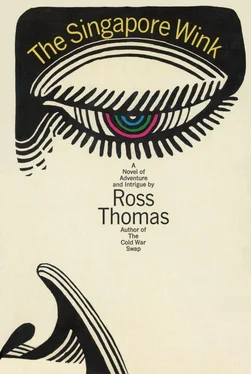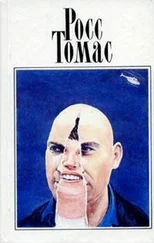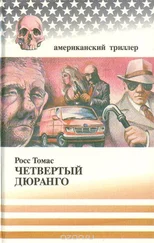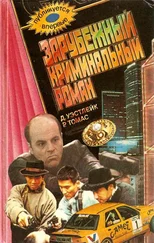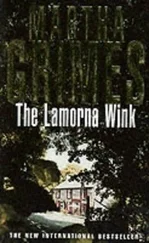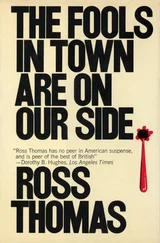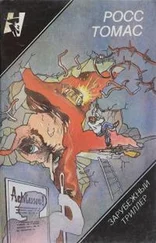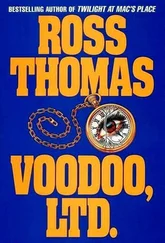“Which, if not victory, is yet revenge,” Trippet murmured.
“Yours?”
He shook his head. “Milton’s.”
“Then you’re both wrong,” I said. “It’s not revenge I’m after. They just owe me something. They owe me for Sydney — that’s first — and they also owe me for two years of the sweats and the shakes. I’d like to collect.”
“How?” he asked.
“I don’t know. I won’t know until I see Cole in Washington and maybe I won’t even know then.”
Trippet chewed on his lower lip for a while and then said: “They must want you most desperately.”
“Enough to do what they did to Sydney. If I say no once more, they won’t hesitate to repeat the performance. I don’t like hospitals. I don’t want to have to come around asking how the cast feels and when are they going to take it off and whether you’ll be able to walk again without a cane.”
A nurse entered the waiting room, gave us a curious glance, and disappeared through another door, moving with that no-nonsense stride that most nurses seem to have. Trippet stirred on his chair, as if to relieve a cramped muscle.
“Do you really think you can take on this man Cole in Washington — and all the brethren — by yourself? I don’t mean to be rude, Edward, but the fact that you dealt in violence for a number of years doesn’t exactly qualify you—” He let the sentence fade away and even seemed a bit embarrassed that he’d made it. As I’ve said, he was polite.
“What do you think I have in mind? A showdown in the lobby of the Washington Hilton?”
“I’m afraid of something like that, but then I’m an incurable romantic.”
“I didn’t deal in violence,” I said. “I dealt in action, or at least that’s what they liked to call it It was spurious violence — faked — no more real than the death scenes. This country has a taste for violence, both real and faked, but I think it’s having a hard time separating the two. You can switch on a news program and watch a South Vietnamese police chief put a pistol to a VC’s head and pull the trigger. Thirty minutes later you can watch a western marshal gun down the visiting bully. Which is more real to the viewer? The police chief or the marshal? I’ll put my money on the marshal.”
“But your new friends are real,” Trippet said.
“Very real.”
“And you think I might be their next target if you refused again — or would it be Ramón or Jack?”
“There’s somebody else,” I said.
“Who?”
“Your wife.”
For the first time since I had known him, Trippet almost lost his poise. He ran a hand nervously through his long, grey hair. “Yes,” he said, “I suppose they are capable of that. I hadn’t thought of it.” He paused for a moment, then rose, turned to me, and made a small, almost apologetic gesture. “I say, would it be terribly inconvenient for you to give me a lift home?”
There was a reception committee for me that late afternoon or early evening when I landed at Dulles International Airport and rode the doodlebug contraption from the plane to the lobby of the soaring terminal building that somehow seems a little lonely sitting out there all by itself on the edge of the Virginia hunt country. It was a committee of one who introduced himself as John Ruffo and nobody could fault him on his manners. He insisted on collecting my bag and carrying it out to the longest, blackest six-door Cadillac that I’ve ever seen except for one that’s owned by a certain Los Angeles funeral parlor. At the car the bag was almost snatched from Ruffo by a uniformed chauffeur who opened one of the two rear doors for us, saw to it that we were tucked safely inside, and then stowed the bag away in what must have been a cavern of a trunk.
“Mr. Cole is delighted that you could come,” Ruffo said. “Did you have a pleasant flight?”
“I’d already seen the picture,” I said, “but the Scotch was excellent.”
“Yes,” Ruffo said, drawling the word as if my remark had been particularly profound. “We’ve taken the liberty of booking you into the Sheraton-Carlton. It’s not the Century Plaza, but it’s quite comfortable, I assure you.”
“I like older hotels,” I said. “Their employees are usually older, too, and that makes for better service.”
The envelope had been waiting for me at the United desk at Los Angeles International, just as Salvatore Callese had promised it would be. It contained a round-trip, first-class ticket to Washington, ten one-hundred-dollar bills, fairly new, and a typed, unsigned note which read:
“Mr. Charles Cole’s car will meet you at Dulles International Airport.”
The car that met me was now gliding down a four-lane highway that seemed almost deserted and my escort, the well-mannered Mr. Ruffo, explained that it was a direct access route to the airport which no other traffic was allowed to use. “Unfortunately,” he added, as if he really cared, “Dulles didn’t draw all the air traffic that its planners thought it would, but it has been picking up lately, I understand.”
“That’s most interesting,” I said, determined to match Ruffo’s politeness. “When do I get together with Mr. Cole? That’s Mr. Charles Cole, isn’t it?”
“Yes,” he said again, as if still convinced that I was the wise man from the West. “Mr. Cole thought it might be nice if you could join him at his home for dinner this evening.”
“That might be nice,” I said, “but it might be even nicer if I knew what the agenda was going to be.”
Ruffo laughed in what I suppose was meant to be a well-bred, yet deprecatory way. “I’m afraid that is something that Mr. Cole will have to discuss with you.”
“You just run the pickup and delivery service.”
“Something like that, Mr. Cauthorne,” Ruffo said and laughed another laugh that matched his J. Press suit and his Eastern seaboard accent. “I suppose you could say that I do something like that.”
Thirty-five minutes after we left Dulles Airport the chauffeur steered the oversized Cadillac into the semicircular driveway before the Sheraton-Carlton at 16th and K Streets and the doorman hopped to it when he saw the car. “Good evening, Mr. Ruffo,” he said as he opened the door and I noticed that Ruffo didn’t tip him. The doorman probably got one of those fairly new hundred-dollar bills every Christmas just to remind him to say, “Good evening, Mr. Ruffo” a half-dozen or so times a year.
The chauffeur transferred the bag to the doorman who transferred it to a bellhop who seemed to think it was a privilege. Ruffo, slightly preceding me, demanded the key to my room from an alert clerk who handed it to the bellhop with the admonition to see to Mr. Cauthorne’s comforts.
Then Ruffo turned to give me the benefit of an exceedingly white, exceedingly deferential smile. “I thought I’d give you an hour or so to get settled and relax,” he said. “I’ll call for you around—” He looked at his watch. “Say around seven-thirty. Will that be satisfactory?”
“Perfectly.”
“I had some Scotch and soda sent up to your rooms,” he said. “If there’s anything else you need, just ring for it.”
“That was very thoughtful of you,” I said.
“Not at all. Just part of the pickup and delivery service.” He smiled again, that nice white smile, but he neglected to put any grin into it and I noticed that the olive skin, the neatly trimmed black hair, the dimpled chin, and the six feet or so of what appeared to be supple muscle failed for the first time to disguise the contempt that his dark brown eyes flicked over me for only a second. In the polite Mr. Ruffo’s social book I was nothing. Perhaps a little less than nothing.
The bellhop followed me into the elevator with my bag where another septuagenarian fiddled with the controls and we wheezed up to the sixth floor.
Читать дальше
